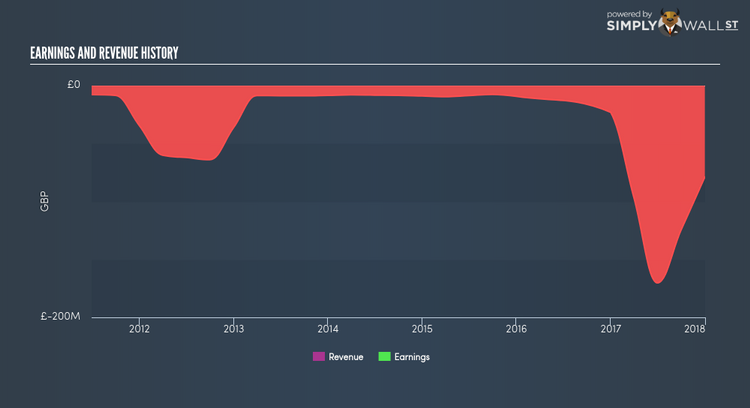Before You Buy Sirius Minerals Plc’s (LON:SXX), Consider This

If you are a shareholder in Sirius Minerals Plc’s (LSE:SXX), or are thinking about investing in the company, knowing how it contributes to the risk and reward profile of your portfolio is important. The beta measures SXX’s exposure to the wider market risk, which reflects changes in economic and political factors. Different characteristics of a stock expose it to various levels of market risk, and the broad market index represents a beta value of one. A stock with a beta greater than one is expected to exhibit higher volatility resulting from market-wide shocks compared to one with a beta below one.
View our latest analysis for Sirius Minerals
An interpretation of SXX’s beta
With a five-year beta of 0.61, Sirius Minerals appears to be a less volatile company compared to the rest of the market. This means that the change in SXX’s value, whether it goes up or down, will be of a smaller degree than the change in value of the entire stock market index. Based on this beta value, SXX appears to be a stock that an investor with a high-beta portfolio would look for to reduce risk exposure to the market.
Does SXX’s size and industry impact the expected beta?
With a market capitalisation of UK£1.62B, SXX is considered an established entity, which has generally experienced less relative risk in comparison to smaller sized companies. But, SXX’s industry, chemicals, is considered to be cyclical, which means it is more volatile than the market over the economic cycle. As a result, we should expect a low beta for the large-cap nature of SXX but a higher beta for the chemicals industry. It seems as though there is an inconsistency in risks from SXX’s size and industry. There may be a more fundamental driver which can explain this inconsistency, which we will examine below.
How SXX’s assets could affect its beta
An asset-heavy company tends to have a higher beta because the risk associated with running fixed assets during a downturn is highly expensive. I test SXX’s ratio of fixed assets to total assets in order to determine how high the risk is associated with this type of constraint. With a fixed-assets-to-total-assets ratio of greater than 30%, SXX appears to be a company that invests a large amount of capital in assets that are hard to scale down on short-notice. As a result, this aspect of SXX indicates a higher beta than a similar size company with a lower portion of fixed assets on their balance sheet. However, this is the opposite to what SXX’s actual beta value suggests, which is lower stock volatility relative to the market.
What this means for you:
You could benefit from lower risk during times of economic decline by holding onto SXX. Take into account your portfolio sensitivity to the market before you invest in the stock, as well as where we are in the current economic cycle. Depending on the composition of your portfolio, SXX may be a valuable stock to hold onto in order to cushion the impact of a downturn. What I have not mentioned in my article here are important company-specific fundamentals such as Sirius Minerals’s financial health and performance track record. I highly recommend you to complete your research by taking a look at the following:
Future Outlook: What are well-informed industry analysts predicting for SXX’s future growth? Take a look at our free research report of analyst consensus for SXX’s outlook.
Past Track Record: Has SXX been consistently performing well irrespective of the ups and downs in the market? Go into more detail in the past performance analysis and take a look at the free visual representations of SXX’s historicals for more clarity.
Other High-Performing Stocks: Are there other stocks that provide better prospects with proven track records? Explore our free list of these great stocks here.
To help readers see pass the short term volatility of the financial market, we aim to bring you a long-term focused research analysis purely driven by fundamental data. Note that our analysis does not factor in the latest price sensitive company announcements.
The author is an independent contributor and at the time of publication had no position in the stocks mentioned.

 Yahoo Finance
Yahoo Finance 
